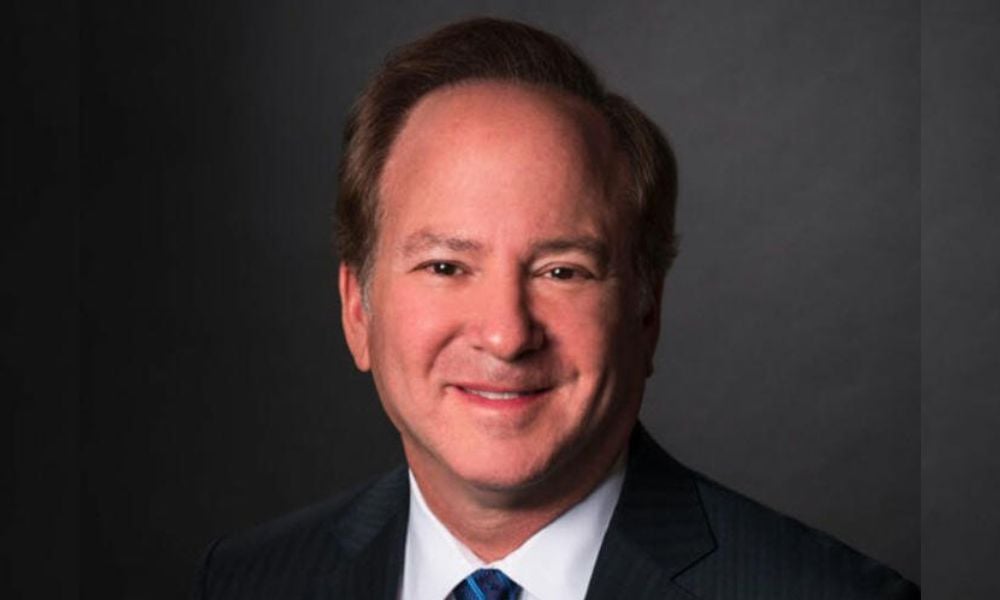It's increasingly clear judges have no patience for experts who cross the line into advocacy, says Richard Bogoroch

This article was produced in partnership with Bogoroch & Associates LLP.
The approach of Canadian courts to expert evidence has undergone a sea change since the 2015 decision in White Burgess Langille Inman v. Abbott and Haliburton Co., where the Supreme Court of Canada affirmed that an expert’s awareness of the duty to be impartial and their willingness to comply with that duty are conditions that go to the very admissibility of their evidence.
“It has become increasingly clear that judges have no patience for experts who cross the line into advocacy,” says Richard Bogoroch, founder of Bogoroch & Associates LLP, a Toronto-based civil litigation boutique whose focus includes medical malpractice and personal injury cases. “We’re at the point where experts have to be non-partisan in the sense of being as objective and fair as possible.”
Justice Cromwell of the Supreme Court of Canada in White Burgess carved out an important gatekeeping function for the trial judge to assess and monitor the independence and impartiality of experts.
The gatekeeping role of the trial judge is a continuing one. “It is well established that a trial judge’s role as gatekeeper is not exhausted once a particular expert has been permitted to testify on the basis of their qualifications and the content of their report,” Justice Harvison Young of the Ontario Court of Appeal stated in the 2021 decision of Parliament v. Conley.
“The continuing gatekeeping role means that trial judges must not only continue to ensure that the expert’s actual testimony does not overstep the appropriate scope of the expert evidence; they must also include ensuring that the expert’s testimony continues to be independent in the sense the expert does not become an advocate for the party by whom they are called,” Justice Harvison Young stated at paragraph 47.
As Justice Jane Ferguson stated in the 2022 decision of Denman v. Radovanovic, expert evidence is a “key element in the search for truth” but “it may also pose special danger.”
“For that reason, the courts have progressively tightened the rules of admissibility and enhanced the trial judge’s gatekeeping role,” Justice Ferguson stated.
Justice Ferguson went on to grant a motion excluding the evidence of a vascular neurosurgeon on the ground of bias. In doing so, she found that the expert was not impartial and was unable and unwilling to comply with his duty of impartiality to the Court due to his open unwillingness to testify for plaintiffs in medical malpractice matters and his failure to disclose a pre-existing relationship with one of the defendant physicians.
More particularly, the witness had a history of retainer exclusively by the defence; had a long association with counsel in the case; had personal involvement with a party; filed reports that were “grossly incomplete” and “replete with advocacy and argument”; gave evidence in other cases that lacked objectivity and impartiality; had a history of giving evidence that had been successfully attacked; gave differing opinions on “near identical subject matter” in different cases; voiced “unsubstantiated opinions” and improperly qualified statements, with unclear or no demarcation between fact and opinion; and expressed conclusions that did “not remotely relate to the available factual foundation or prevailing special knowledge.”
Even where judges have not excluded expert evidence as biased, they have been quick to express their displeasure with and reject expert testimony that falls short of impartiality.
In the 2022 decision of Graul v. Kansal, Justice Gordon Lemon acknowledged that judges will “always need expert evidence in some areas” and that experts must be paid.
“But they also need to understand their role is to assist the court, not the party who pays them,” he added. “I encourage Dr. Freedman and Dr. Mitchell to focus their exceptional medical knowledge and experience on the patients that need them and to forgo this well-paid role. If they intend to carry on this line of work, I recommend that they familiarize themselves with the principles of expert evidence set out in R. v. France, 2017 ONSC 2040, 36 C.R. (7th) 293. Where their evidence conflicts with other expert evidence, I reject their evidence.”
All of which is not to say that experts cannot stand firm in their opinions. “Experts are human and they’re allowed to be passionate, as long as their testimony is well- researched and logical and they don’t cross the line into advocacy,” Bogoroch says.
The most recent expression of these principles in a medical malpractice case appears in the judgment of Ontario Superior Court Justice Byrdena MacNeil in The Estate of Ashly Mickey Lynn Coville et al v. Hamilton Health Sciences Corporation et al. In that case, a woman tragically died as a result of complications from bacterial pneumonia which the
Plaintiffs, her family, argued was due to inadequate investigations undertaken by the defendant emergency physicians.
While Justice MacNeil agreed with the plaintiffs that the defence expert used “some superlative forms when testifying,” she nevertheless found him to be a credible and reliable witness. “He was knowledgeable and fair in his testimony. In my view, he was balanced when responding to questions on cross-examination while maintaining his own opinion,” Justice MacNeil stated.
As Bogoroch sees it, then, White Burgess is among the “most important evidentiary cases in the last 15 years.”
White Burgess solidified the role of the trial judge as a gatekeeper of expert evidence, which subsequent case law has confirmed is an active and continuing one. The trial judge must continually assess and ensure the expert’s compliance with his/her duty of impartiality to the Court.
Where it seems a trial is about to devolve into “trial by expert,” White Burgess and subsequent case law makes clear that expert evidence which is neither fair nor impartial will be admissible. “The trial judge must avoid the temptation to take the path of least resistance and rule the evidence admissible, subject only to weight,” Justice Ferguson made clear in Denman.










